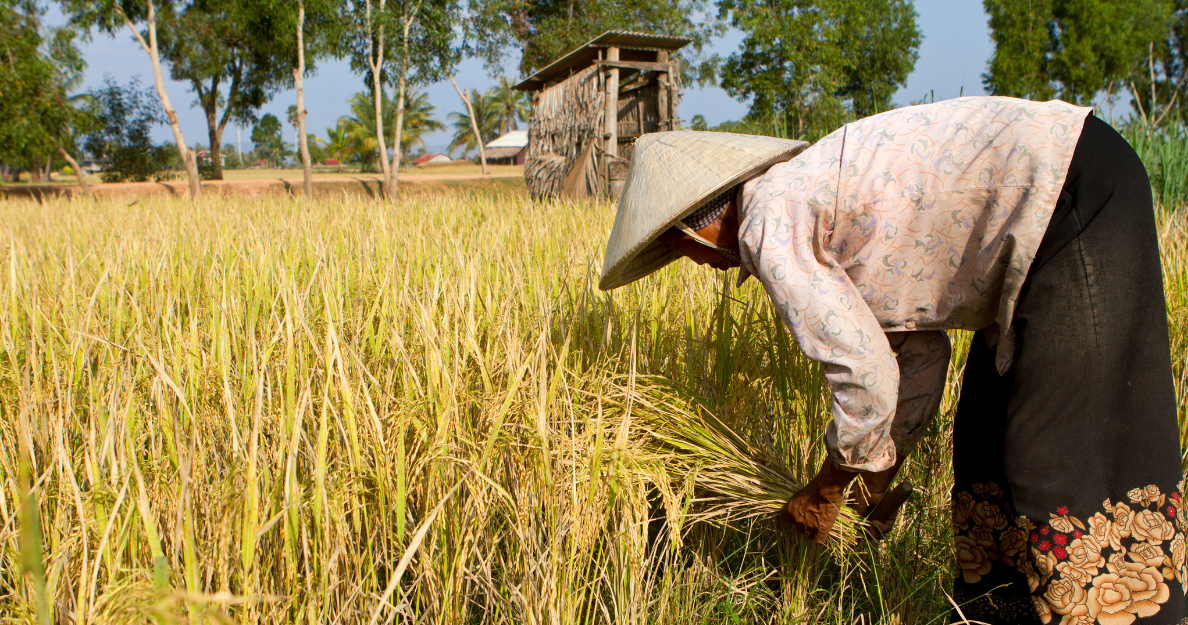

One in five Cambodians are engaged in rice production processing and marketing, making it one of the largest sources of employment in the country. In recent years, Cambodia has significantly increased rice production with the aim of strengthening the foundation for economic growth, accelerating poverty reduction, as well as improving the living standards of the Cambodian people.
However, as with many agricultural commodities, transparency into the human rights risks and working conditions of those involved in rice production, is low. International buyers have limited visibility and knowledge of the human rights risks in Cambodian rice production, especially among low-tier smallholder rice growers and mill-owners. Adding to this, the rice supply chain is highly complex, encompassing producing farmers, diverse milling and processing stages, intermediary entities like village traders and cooperatives, as well as a comprehensive market reach spanning both domestic and international spheres.
In order to bring greater visibility to human rights risks in Cambodian rice production and to clearly spotlight international buyers’ relationship to human rights risks in Cambodia, Global March Against Child Labour and CNV International commissioned The Centre for Child Rights and Business on behalf of the members of the Dutch International Responsible Business Conduct Agreement for Food Products,1 to undertake a comprehensive risk assessment, our first such project in Cambodia’s rice production sector.
The Centre's approach for assessing the risks of the rice production chain in Cambodia involved a comprehensive research and analysis. This included desk research, mapping of the rice chain, hotspot analysis, interviews, and a local impact assessment.
The study had a specific focus on the employment and working conditions, health risks, and human and labour rights violations, examining the scale and use of child labour, bonded labour, migrant labour, and debt bondage. We made sure to capture feedback from key stakeholders such as rice farmers, women, children and youth, farm labourers, mill workers, and other essential stakeholders to get the full picture.
In 2023, we completed the full assessment and submitted an in-depth analysis of child rights risks such as child labour, as well as human rights risks that included human trafficking and forced labour. Through our well-structured methodology and presentation, we were able to show clear linkages between international buyers and the extent to which they are linked to human rights risks. The outcomes of the research were discussed during a webinar on July 10, 2023 together with the Sustainable Rice Initiative.2 Read the full report here.
The Centre has carried out dozens of assessments in sectors spanning agriculture, manufacturing, and mining. Our expertise in the field of business and human rights, especially child rights, enables international buyers to understand and address risks. To learn more about our risk and impact assessments, please contact us.
_________
1 https://www.imvoconvenanten.nl/en/food-products
2025/10/01
UN GCD Supply Chain Dialogue 2025 - From Checklists to Change: Innovating Human Rights Due DiligenceBy using this website, you agree to our use of cookies. We use cookies to provide you with a great experience and to help our website run effectively.